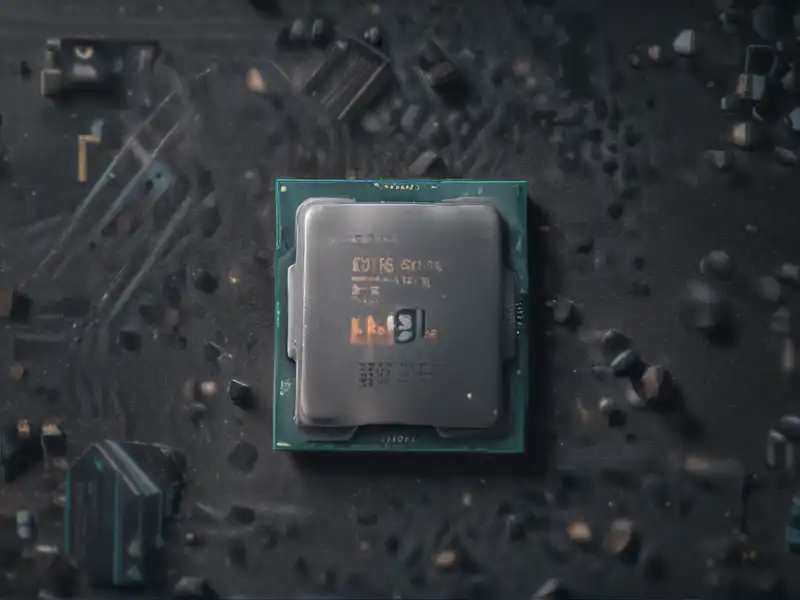Understanding Processor Types: A Guide for Laptop Users
In today's digital age, laptops have become an essential tool for both work and leisure. One of the key components that determine the performance of a laptop is its processor. Choosing the right processor type can be a daunting task, especially with the wide array of options available in the market. In this comprehensive guide, we will delve into the different processor types commonly found in laptops, their features, and how they impact the overall performance of your device. Whether you are a casual user or a tech-savvy individual, this article will provide you with the knowledge needed to make an informed decision when purchasing your next laptop. So, let's dive in and unravel the world of processor types for laptop users.
---
[Heading 1]
When it comes to processors, there are two main manufacturers dominating the market: Intel and AMD. Intel has long been considered the industry leader, with a wide range of processors catering to various needs and budgets. On the other hand, AMD has made significant strides in recent years, offering competitive processors that provide excellent performance at a lower price point. Both manufacturers have their own strengths and weaknesses, so it's essential to understand what each has to offer before making a decision.
Intel processors are known for their reliability and efficiency. They are often preferred by users who prioritize performance and power efficiency. Intel's Core series processors, such as the Core i3, i5, i7, and i9, are among the most popular choices for laptops. The Core i3 is ideal for basic tasks like web browsing and light multitasking, while the Core i5 and i7 are suitable for more demanding applications like gaming and content creation. The Core i9 is Intel's flagship processor, designed for enthusiasts and professionals who require top-notch performance.

On the other hand, AMD processors have gained popularity for their affordability and value for money. AMD's Ryzen series processors are known for offering excellent performance at competitive prices. The Ryzen 3, 5, 7, and 9 processors are equivalent to Intel's Core series in terms of performance levels. AMD processors are especially popular among budget-conscious users who want to get the most bang for their buck. Additionally, AMD processors are known for their excellent multitasking capabilities, making them a great choice for users who often run multiple applications simultaneously.
---

[Heading 2]
Another crucial factor to consider when choosing a processor for your laptop is the number of cores and threads it has. Cores are individual processing units within a processor, while threads allow each core to handle multiple tasks simultaneously. A higher core and thread count results in better multitasking performance, as each core can handle more tasks at once. This is particularly important for users who frequently run demanding applications or multitask heavily.
Intel processors typically have higher clock speeds and single-core performance compared to AMD processors. This makes Intel processors a better choice for tasks that require fast single-core performance, such as gaming. On the other hand, AMD processors tend to have more cores and threads at a lower price point, making them a better choice for multitasking and productivity tasks. AMD's Ryzen processors are particularly well-suited for content creation, video editing, and other multi-threaded applications.
It's essential to assess your usage patterns and needs when deciding on the number of cores and threads you require. If you primarily use your laptop for basic tasks like web browsing and word processing, a dual-core processor with four threads may suffice. However, if you are a power user who frequently engages in CPU-intensive tasks, a quad-core or higher processor with eight or more threads would be more suitable.
---
[Heading 3]
Lastly, it's crucial to consider the thermal design power (TDP) of a processor when selecting a laptop. TDP measures the amount of heat a processor generates under load and indicates how much cooling is required to maintain optimal performance. Processors with higher TDP values typically require more robust cooling solutions to prevent overheating and ensure stable performance.
Intel processors are known for their lower TDP values compared to AMD processors. This means that laptops powered by Intel processors tend to have better battery life and generate less heat during operation. On the other hand, AMD processors generally have higher TDP values, which can result in increased power consumption and heat output. However, AMD has made significant improvements in recent years to optimize the efficiency of their processors, narrowing the gap between Intel and AMD in terms of power consumption and heat generation.
When choosing a laptop, it's essential to consider the TDP of the processor and ensure that the laptop's cooling system is adequate to handle the heat generated by the processor. A well-designed cooling system will not only prolong the lifespan of your laptop but also ensure consistent performance under heavy workloads. Additionally, factors like the laptop's form factor, ventilation, and thermal management will also impact the overall thermal performance of the device.
---
In conclusion, understanding the different processor types available for laptops is crucial in determining the performance and capabilities of your device. Whether you prioritize performance, value for money, or power efficiency, there is a processor type out there that meets your needs. By considering factors like manufacturer, core and thread count, and thermal design power, you can make an informed decision when selecting a laptop with the right processor for your usage patterns. So, the next time you're in the market for a new laptop, remember to take into account the processor type to ensure that you get a device that suits your needs perfectly.
